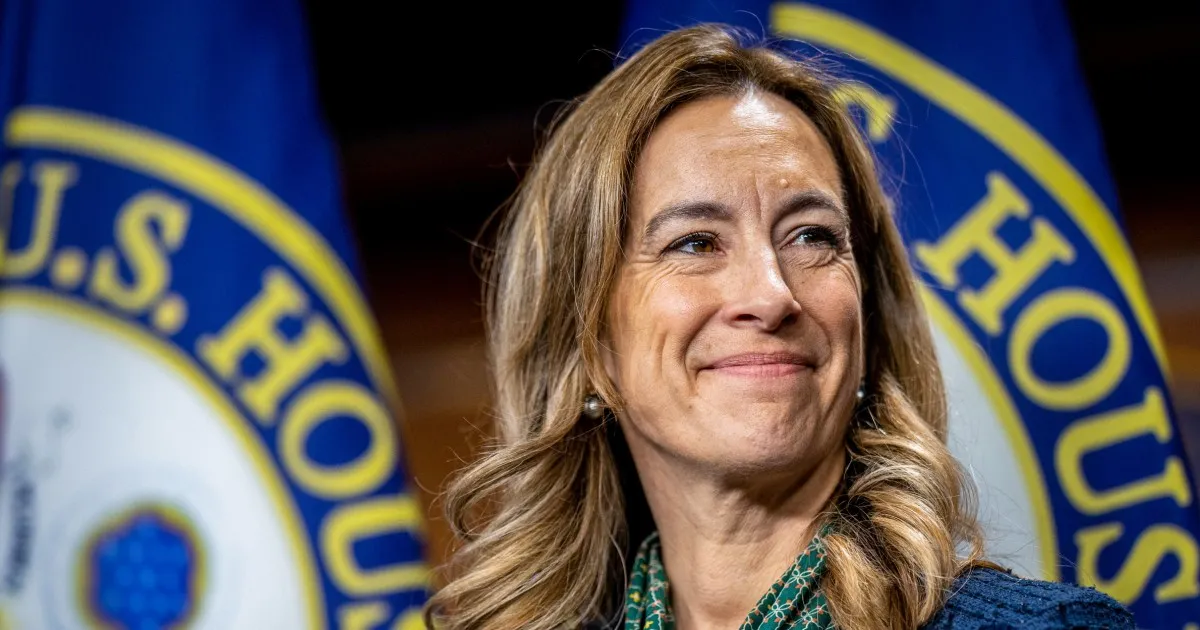
Mikie Sherrill, the Democratic Representative, has emerged victorious in the New Jersey governor's race, as projected by NBC News. She defeated Republican opponent Jack Ciattarelli in a highly competitive contest, where the shadow of former President Donald Trump significantly influenced voters' decisions. Throughout the campaign, Sherrill framed the election as a referendum on Trump, portraying Ciattarelli as a loyal supporter unwilling to challenge the former president’s agenda.
During their first debate in October, Sherrill stated, “He’ll do whatever Trump tells him to do, and I will fight anybody to work for you.” This assertion encapsulated her strategy to distance herself from Trump’s influence while appealing to voters concerned about his policies. Although Trump had made notable gains nationally in the 2024 election, his influence did not translate into success for Ciattarelli in New Jersey. The former president lost the state by a margin of 6 points last year, showing a 10-point improvement from the 2020 election. Sherrill’s victory indicates that Republicans may not be able to rely on Trump’s gains to secure future electoral success in New Jersey.
Sherrill’s win sends a clear message to the Republican Party: improved results for Trump in previous elections do not guarantee ongoing success. Instead, the party faces challenges as voters express dissatisfaction with Trump’s management of the economy and other pressing issues. Following a surprisingly close race, the New Jersey governor’s contest saw over $95 million in ad spending from both parties, as reported by AdImpact. This election served as an early indicator of strategies to engage pivotal swing voters, particularly within the Latino community, while addressing rising costs, especially utility expenses.
Sherrill aimed to galvanize her party’s core supporters, particularly Black voters, while Republicans faced the ongoing challenge of mobilizing Trump loyalists in an election where he was not on the ballot. On the campaign trail, Sherrill criticized Trump’s policies, arguing that they were responsible for increasing everyday costs from groceries to coffee. She vowed to join a lawsuit against Trump’s tariff policies on her first day as governor.
On the other hand, Ciattarelli praised Trump’s policies, highlighting the former president's endorsement during the GOP primary. However, he also contended that Trump could not be blamed for New Jersey’s high cost of living and taxes. Attempting to shift the focus of the race, Ciattarelli framed it as a referendum on the policies of Democratic Governor Phil Murphy, who was ineligible to run for re-election due to term limits. In 2021, Ciattarelli narrowly lost to Murphy by just 3 points.
“New Jersey, we need change,” Ciattarelli declared during his first debate with Sherrill, addressing the state’s pressing issues, including affordability, public education, public safety, and overdevelopment. Despite his efforts, Ciattarelli could not secure a win in New Jersey, where the party in power at the White House has lost eight of the last ten gubernatorial elections. In contrast, Sherrill’s win marks a significant milestone, helping her party achieve three consecutive gubernatorial victories for the first time since 1961.
Sherrill’s journey to the governorship during Trump’s second term follows her election to Congress during the 2018 blue wave, which was a direct response to Trump’s first presidential victory. In that race, she flipped a long-held Republican House seat by emphasizing her experience as a Navy pilot, prosecutor, and mother of four. Her recent campaign for governor was bolstered by a hotly contested primary win, with many supporters viewing her as the candidate most capable of challenging Trump’s influence.
Throughout her campaign, Sherrill emphasized the critical issue of New Jersey’s high cost of living. She pledged to declare a state of emergency concerning utility costs on her first day in office, aiming to freeze electricity rates and work diligently to reduce these expenses. Additionally, she vowed to confront the Trump administration regarding federal funding for the Gateway Tunnel Project, an essential initiative aimed at enhancing rail connectivity between New York and New Jersey, which Trump recently attempted to defund amid a federal government shutdown.